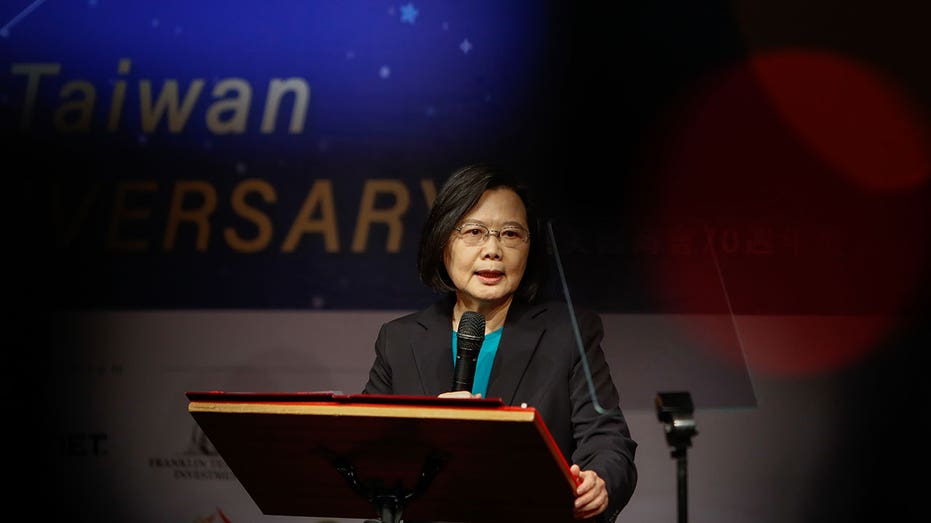American companies in Taiwan make contingency plans amid tensions with China
China, which considers self-ruled Taiwan its own territory, has been stepping up military drills across the Taiwan Strait
Almost half of companies surveyed by the American Chamber of Commerce (AmCham) in Taiwan are revising or plan to revise their business continuity plans amid tensions with China, while a growing number reported being impacted by those strains.
China, which views democratically-governed Taiwan as its own territory, has been stepping up military drills across the Taiwan Strait since then-U.S. House Speaker Nancy Pelosi visited Taipei in August.
In a survey released on Tuesday, which took place between Nov. 15 and Dec. 16, AmCham Taiwan said 33% of respondents said their operations had been "significantly disrupted" by the increase in tensions, compared with 17% when it did a flash survey in August right after China began war games.
SWISS LAWMAKERS VISIT TAIWAN TO DEEPEN POLITICAL RELATIONS AMID TENSION FROM CHINA
While what it termed "personal anxiety" about increased military activity or tensions remained flat between August and December, 47% of companies said they either have revised or plan to revise business continuity plans "to address the new geopolitical climate."
"We are aware that companies are either initiating or renewing their planning efforts, operational contingency planning. We know that's going on," AmCham Taiwan President Andrew Wylegala told reporters.

Taiwan President Tsai Ing-wen speaks at the 70th anniversary ceremony for the American Chamber of Commerce in Taipei on Dec. 8, 2021, amid rising tensions between Taiwan and China. (Ceng Shou Yi/NurPhoto via Getty Images)
AmCham Taiwan, which said that 214 of its 437 members responded to the December survey, said one-third of companies reported being disrupted by elevated concern or policy changes from their global headquarters, followed by increased shipping, insurance, or financial costs and staff anxiety.
Political uncertainty was the biggest factor deferring members from further investment in Taiwan, and more than half of respondents said cross-strait relations should be the government's top priority in the coming three years, it said.
CLICK HERE TO GET THE FOX NEWS APP
The group has called for an ambitious agenda to accelerate economic cooperation with Taiwan through a new Taiwan-U.S. trade talks framework - and eventually a bilateral trade agreement, though it hopes to see faster progress.
"Engagements are going on between the U.S. and Taiwan. A year and half ago there was none," Wylegala said. "There is an expectation and hope that things will move faster."




















